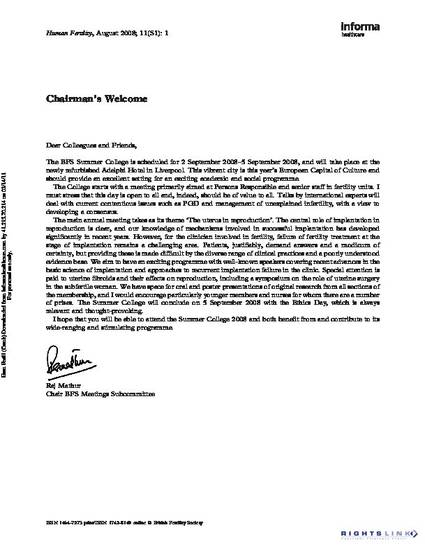
Article
P1: Effect of age, oestradiol levels and endometrial thickness on determining success of frozen embryo transfers
Human Fertility
Publication Date
1-1-2008
Document Type
Article
Disciplines
Abstract
Introduction: Frozen-thawed embryo transfer (FET) is a widely used technique, with replacement of embryos during natural menstrual cycles or in cycles constructed by exogenous steroids having similar outcomes in many series. Multiple factors have been proposed to have a positive influence on the success rate of FET, including increased endometrial thickness, younger maternal age and lower circulating oestradiol. The impact of these variables in the context of constructed cycles, using GnRH agonists to facilitate suppression of ovarian function prior to exogenous steroid administration, is not known. The aim of this study was to determine the predictive ability of these indices on clinical outcomes.
Citation Information
Alfred Murage, Maybeth Jamieson, Robin Yates, Isabel Traynor, et al.. "P1: Effect of age, oestradiol levels and endometrial thickness on determining success of frozen embryo transfers" Human Fertility Vol. 11 Iss. s1 (2008) p. 8 - 9 Available at: http://works.bepress.com/scott-nelson/23/

This work was published before the author joined Aga Khan University.